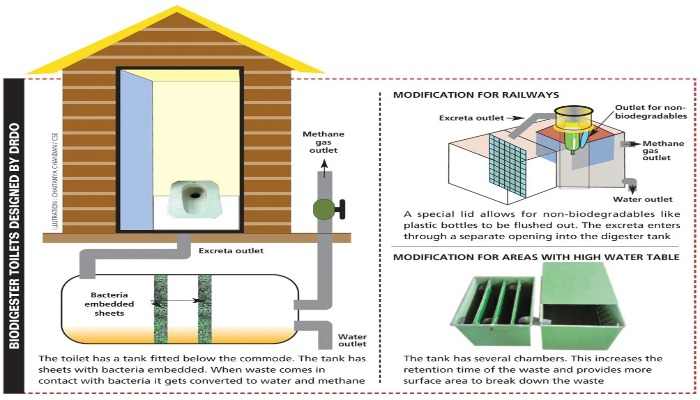DRDO Designed Bio-Digester Toilets Along The Chardham Yatra Route
Category : Travel Advisory |
![]() Posted on 07 February 2024
Posted on 07 February 2024

For Hindus the chardham yatra is one of the pilgrimages they must undertake at least once in their life to feel they have done their duty. The pilgrimage is anything but easy since it involves walking over steep rocky trails under harsh weather conditions at times. What makes matters worse is the woeful absence of any facilities such as tea shops, rest houses or toilets along the way. For most travelers, answering the call of nature means wandering off into the bushes. It certainly litters the area and makes the route a bit unpleasant for the pilgrims.
In this backdrop the announcement by the Uttarakhand Government that they will be putting up bio-digester toilets along the chardham yatra route is a welcome piece of news for pilgrims. According to sources the toilets will be sourced from the Defense Research& Development Organisation (DRDO). These bio-digester toilets will be set up along the route. The government plans to install 100 such toilets in the first phase.
DRDO had designed and developed the bio-digester toilets for use by the army in high altitude stations. Each bio-digester toilet costs around Rs. 7 lakhs and has bio-digester technology that makes use of bacteria to treat waste and render it environmentally friendly, as opposed to chemical toilets that are not so bio-friendly. These toilets are available in two versions. One is a stationary model and another is a mobile version that can be transported and stationed anywhere. Both are developed specifically for use in hilly areas.
It is not clear at this stage where exactly the toilets will be located along the route. There are questions as to whether the toilets will cover the entire route starting from Haridwar or Rishikesh or Barkot right up to Badrinath, the last leg of the tour or whether these toilets will be put up only from the starting point of the treks to each place. If this is so it means the toilets will be placed only along the Jankichatti-Yamunotri route; the Harsil-Gangotri route; the Guptkashi-Kedarnath route and the Guptkashi-Badrinath route. If this is so, it will prove a great boon for pilgrims who usually have to cover distances of about 7 to 15 kilometers on foot or on ponies. A few toilets on each route would greatly help pilgrims relieve themselves, especially those with a medical condition. It would of course be welcome if toilets were placed along the entire route starting from Haridwar onwards because roads wind in and out of hills and there are hardly any facilities along the way.
According to senior officials of the State tourism department they are in talks with local administrations in each place to decide on placement of the toilets. Once the toilets are in place they would also be putting up signs pointing to the toilets. It is hoped pilgrims will make use of the toilets and will not desecrate the countryside.
The bio-digester toilets developed by DRDO degrade wastes in an environmentally-friendly way, making use of bacteria for anaerobic digestion. There is no foul smell in the toilets and waste is not visible. The design is such that insects or vermin cannot infest the toilet and there will be no clogging. There will be no effluents since the bio-digester is self contained and it requires no maintenance. Maintenance is always an issue with public toilets in cities and becomes a difficult task in remote locations. The design of the biodigester is such that wastes need not be removed immediately.
It would be wishful thinking but when the government is going to trouble and expense to install the toilets, one only hopes it will create and area around the toilets with facilities for sitting or resting, a sort of mini-garden along the way to help pilgrims rest their tired legs.


